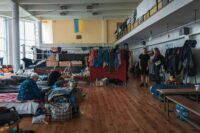
The Trouble With “the Global South”
Not so long ago, policymakers in Washington and other Western capitals gave little apparent thought to the possibility that the rest of the world might hold opinions distinct from their own. There were some exceptions: governments that the West deemed “good partners”—in other words, those willing to advance U.S. and Western security or economic interests—continued to benefit from Western support even if they did not govern themselves in accordance with Western values. But after the Cold War ended, most Western policymakers seemed to expect that developing countries would, over time, embrace the Western approach to democracy and globalization. Few Western leaders seemed to worry that non-Western states might bridle at their norms or perceive the international distribution of power as an unjust remnant of the colonial past.… Seguir leyendo »














